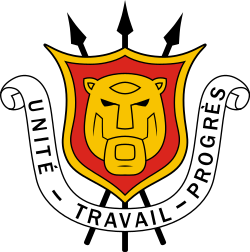| Prime Minister of Burundi | |
|---|---|
| Umushikiranganji wa Mbere w'Uburundi (Kirundi) Premier Ministre du Burundi (French) Waziri Mkuu wa Burundi (Swahili) | |
 | |
since 5 August 2025 | |
| Status | Head of government |
| Appointer | The King (1961–1966) The President (1966–1998, 2020–present) |
| Formation | 26 January 1961 24 June 2020 (restored) |
| First holder | Joseph Cimpaye |
| Abolished | 12 June 1998 –24 June 2020 |
 |
|---|
This article lists the prime ministers of Burundi since the formation of the post of Prime Minister of Burundi in 1961 until the present day. The office of prime minister was most recently abolished in 1998, and reinstated in 2020 with the appointment of Alain-Guillaume Bunyoni. [1] [2]
Contents
- List of officeholders
- Prime ministers of the Kingdom of Burundi
- Prime ministers of the Republic of Burundi
- Timeline
- See also
- Notes
- References
- External links
Counting both the Kingdom and Republic periods, a total of sixteen people have served in the office (not counting one acting prime minister). Additionally, two people, Pierre Ngendandumwe and Albin Nyamoya, served on two non-consecutive occasions. The current prime minister is Nestor Ntahontuye, since 5 August 2025.
















